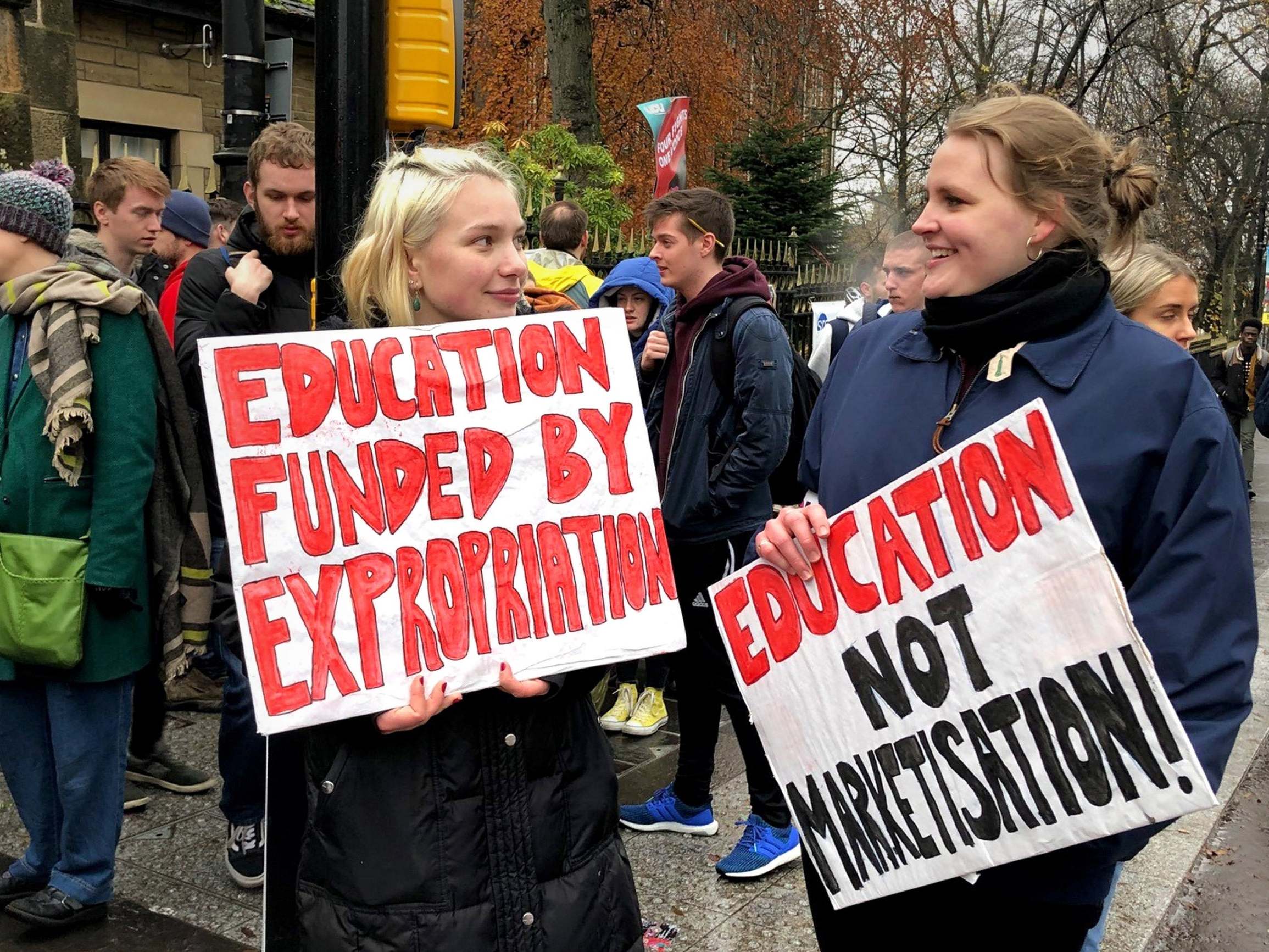University strikes: Students demand compensation for second wave of cancelled lectures
Undergraduates worry dissertations and exams will be affected by 14 days of walkouts

Your support helps us to tell the story
From reproductive rights to climate change to Big Tech, The Independent is on the ground when the story is developing. Whether it's investigating the financials of Elon Musk's pro-Trump PAC or producing our latest documentary, 'The A Word', which shines a light on the American women fighting for reproductive rights, we know how important it is to parse out the facts from the messaging.
At such a critical moment in US history, we need reporters on the ground. Your donation allows us to keep sending journalists to speak to both sides of the story.
The Independent is trusted by Americans across the entire political spectrum. And unlike many other quality news outlets, we choose not to lock Americans out of our reporting and analysis with paywalls. We believe quality journalism should be available to everyone, paid for by those who can afford it.
Your support makes all the difference.Students whose studies are set to be hit by a second wave of walkouts on UK campuses later this month have already begun demanding compensation.
Undergraduates, who have to pay up to £9,250 a year in tuition fees, are warning that another 14 days of strike action from university staff will significantly disrupt their exams, dissertations and coursework.
The University and College Union (UCU) announced this week that members would walk out at 74 universities from 20 February amid disputes over staff pensions, pay and working conditions.
It comes after tens of thousands of workers took part in eight days of strike action at 60 universities during November and December last year, which saw lectures, tutorials and seminars cancelled.
Just days after the fresh action was announced, students at universities facing walkouts, including York, Leicester and Sheffield Hallam, launched petitions calling for refunds for lost teaching time.
Tom Barton, a third-year student at Sheffield Hallam University, where walkouts took place last term, said he would be left without one-to-one feedback on his dissertation and coursework for two weeks.
Mr Barton, who launched a petition for compensation on behalf of Sheffield Hallam students, said: “I was personally affected last year when the lecturers went on strike for a week as I had a piece of work that I needed feedback on, but I couldn't get in touch with my tutor to get the feedback.
“This led me to completely rush my work when they came back off strike to meet a deadline, which I fully believe got me a much worse mark than I should have.”
The petition, which has attracted more than 6,000 signatures, calls for each student to be given more £860 each in compensation for the lost teaching time and it adds that deadlines should be extended.
Mr Barton told The Independent: “The strikes will affect thousands of students because they're in a crucial period where students rely on one-to-one tuition with their lecturers for dissertations, final projects or exams.
“We do fully support the lecturers in their strike action, however we feel that we, as paying students, should be compensated for the lost tuition time and at the very least get an extension on our deadlines.”
It comes after a number of institutions were forced to pay compensation to students over missed teaching hours when universities were brought to a standstill by strikes over pensions in 2018.
Students are facing disruption to their lectures and seminars for the third time during their degrees.
Claire Sosienski Smith, vice president for higher education at the National Union of Students (NUS), said: “Students have a right to be angry about the lack of progress on the discussions between UK institutions and the staff who teach and support them, day in and day out.
“We know that the student experience will always be better with satisfied staff who are able to teach and support students to their fullest ability. Unfortunately, this isn’t able to happen, which is why we stand together with UCU as they seek to negotiate a solution.”
She added: “We support students seeking to complain to their institutions and vice-chancellors about missed teaching, and encourage them to contact their students’ union’s advice service, who’ll be able to help them with this. We stand in full solidarity with staff who are taking strike action.”
University staff will pay around £40,000 more into their pension – but they will receive nearly £200,000 less in retirement following reforms to the pension scheme, the UCU says.
Increased contributions and other changes to the universities superannuation scheme mean many people are suffering substantial losses, the union has previously warned.
Jo Grady, general secretary of the UCU, said: “We are on the same side in this dispute and we hope students across the UK will put pressure on their vice-chancellors and principals to send the employers’ representatives back to the negotiating table with a clear mandate to work seriously with us to try and resolve them without the need for further action.”
A Universities UK (UUK) spokesperson said: “Universities understand that missed teaching time is unsettling and will try to ensure that students do not miss out by providing replacement teaching and learning resources. If students feel these are inadequate, they should take this up with their university in the first instance.
“If they are not satisfied with the response they can complain to the relevant ombudsman for their country and they could be entitled to financial compensation if reasonable alternative arrangements were not put in place.”
Join our commenting forum
Join thought-provoking conversations, follow other Independent readers and see their replies
Comments